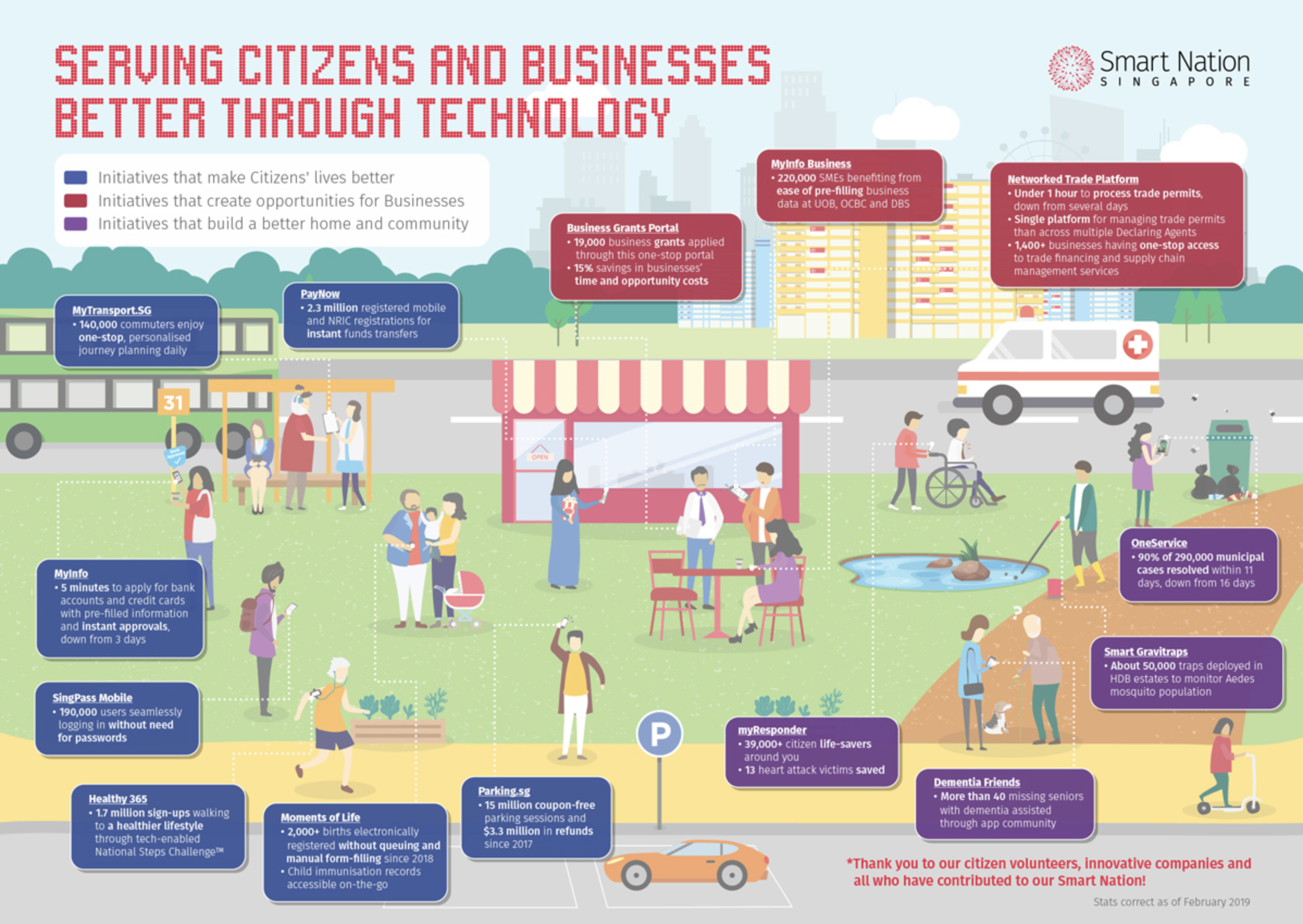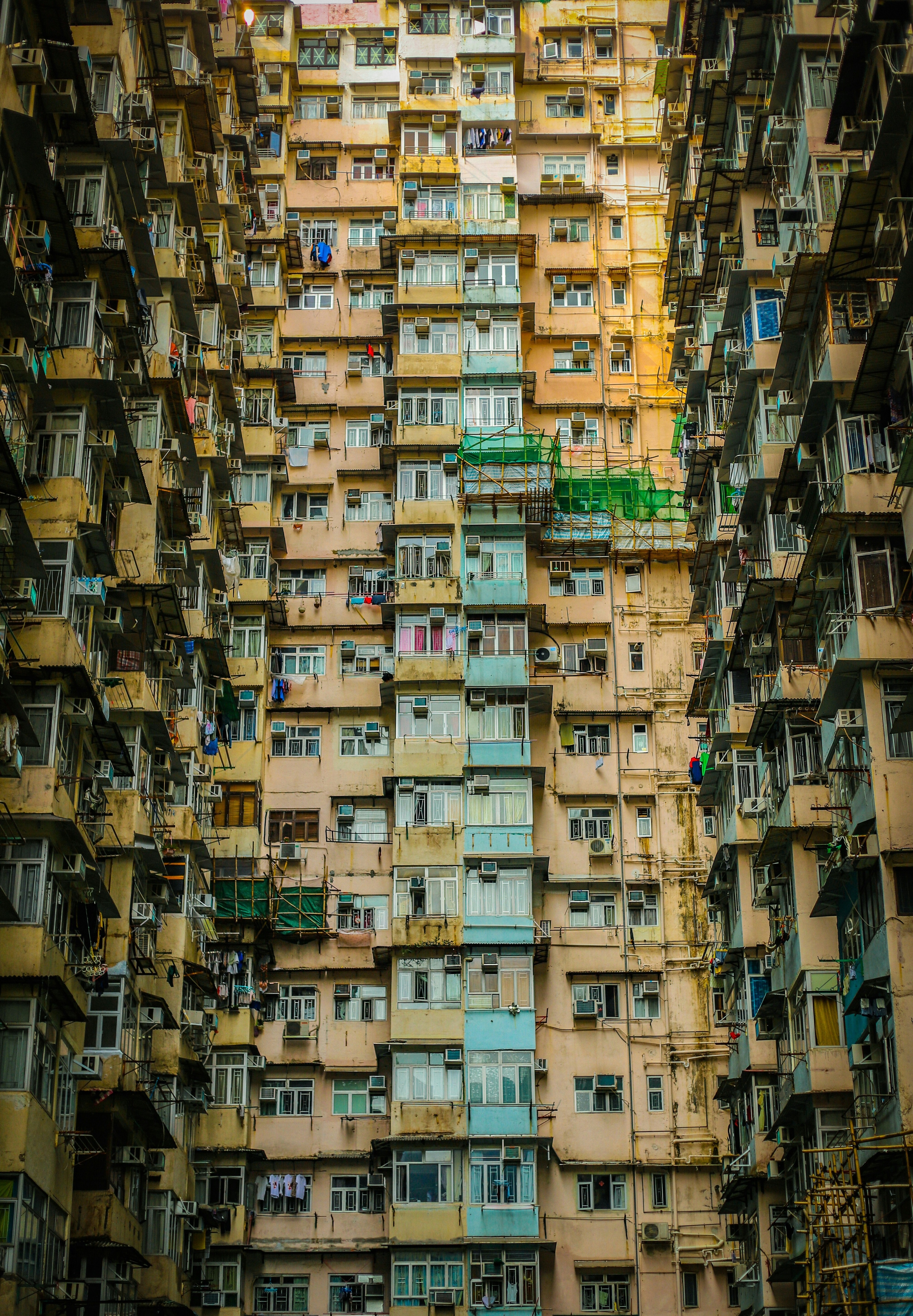3 reasons why Singapore is the smartest city in the world

Building a transportation network that integrates walking, cycling and public transport is a smart move
Image: REUTERS/Edgar Su - GF10000358413
Sharmishta Sivaramakrishnan
Community Specialist, Young Global Leaders - Asia, World Economic Forum GenevaStay up to date:
Singapore
It’s official: Singapore is the world’s smartest city. That’s according to a new survey Published by Swiss business school IMD and the Singapore University of Technology and Design - the IMD Smart Cities Index - which looked at how well cities are adopting digital technologies and improving the lives of the people who live there.
Looking at aspects such as public safety, mobility, governance and health, the index measured cities’ performance on maintaining green spaces, improving existing local institutions, and digitalizing access to employment, all while maintaining the security of their citizens.
While there is no universal definition for the term ‘smart city,’ it is a concept that was devised at the advent of the internet of things (IoT). Smart cities are committed to improving the provision and development of urban services through the use of digital technology.

Here are three ways Singapore is smarter than the average city.
How a city’s leaders shape the future of healthcare will ultimately determine how the prosperity of the city itself and of its citizens. A healthcare ecosystem that celebrates continuous learning and innovation, builds communities and offers reliable specialist care is essential. Moreover, how well is a city’s leadership putting empathy at the heart of its healthcare infrastructure?
In Singapore, a key example of this is the development of Healthcity Novena - a masterplan for community-focused health in which infrastructure such as pedestrian walkways, underground car parks and outdoor green spaces exist to complement and ameliorate the citizen-patient experience. A city whose leaders proactively think about these aspects of healthcare provision will inherently be a healthier one.
Singapore’s Housing Development Board (HDB) offers all citizens access to free public housing. Furthermore, the country’s leaders have created public housing that is more than just an apartment space; it also stretches into larger community areas that integrate liveability, sustainability and growth. More than 80% of the country’s population lives in public housing, which means the provision and administration of housing is pivotal to the identity and character of a diverse city like Singapore. The country’s leadership is not only integrating crucial principles of community generosity, building family ties and racial harmony, it must also consider pragmatic factors needed for inclusive housing such as financial planning, allocation and insurance. By planning for the future, the city’s leaders can take an active role in adding heart to housing, ensuring that residents live in spaces characterized by vibrancy, self-sufficiency and connectivity.
Accept our marketing cookies to access this content.
These cookies are currently disabled in your browser.
Transportation determines much of the quality of life for residents in a smart city. In late October, the city’s Land Transit Authority (LTA) expanded a pilot area for autonomous vehicles (AVs) to cover the whole of western Singapore. The city’s leaders have realized that in order to build a resilient workforce and citizenry, mobility must be designed in a way that not only covers the last mile of a journey but also that allows everyone to participate in what the city has to offer.
In Singapore, the LTA is building a system of transport infrastructure in which daily commutes can integrate active mobility modes like walking and cycling with public transportation services like mass rapid transit (MRT) and buses. The ‘Walk Cycle Ride’ initiative offers national benefits: it encourages more liveable recreation spaces, promotes sustainable energy use and reduces pollution. By applying advanced technologies to mobility, the city enables citizens to lead more active lifestyles through convenient and cost-effective transportation.
These practices demonstrate how much can be done when a city’s leaders focus on strong governance and the integration of citizens’ interaction, comfort and preferences. If these principles are adapted in other geographic contexts and are paired with the right amounts of investment, we may soon see a flourishing list of smart cities around the world. Transforming the ways in which citizens inhabit their cities by prioritizing health and mobility will, in turn, raise the growth potential of the world’s cities.
In autumn this year, the Forum of Young Global Leaders was able to host its first Executive Education module with the generosity and support of Nanyang Technological University (NTU) in Singapore. Focusing on the theme of smart cities, the module offered a series of expert-led seminars, workshops and site visits to allow 30 Young Global Leaders (YGLs) a chance to learn about Singapore as a case study in applying technology to urban development, management and leadership. During the week-long course, YGLs were able to examine the management of different sectors of Singapore's urban economy in order to prepare them to further improve and to invest in the urban development and livelihoods that will lead their own cities into the future. Overall, the module provided a broad overview of how Singapore has placed itself at the forefront of urban development, resilience and sustainability through futuristic policy making and regulations.
Don't miss any update on this topic
Create a free account and access your personalized content collection with our latest publications and analyses.
License and Republishing
World Economic Forum articles may be republished in accordance with the Creative Commons Attribution-NonCommercial-NoDerivatives 4.0 International Public License, and in accordance with our Terms of Use.
The views expressed in this article are those of the author alone and not the World Economic Forum.
Forum Stories newsletter
Bringing you weekly curated insights and analysis on the global issues that matter.
More on Urban TransformationSee all
Michael Fröbel and Stanislas Hillen
August 8, 2025
Jeff Merritt and Vivian Brady-Phillips
July 25, 2025
Muhammad Hassan Dajana and James Balzer
July 22, 2025
Olivia Nielsen
July 16, 2025
Luis Antonio Ramirez Garcia
July 14, 2025




